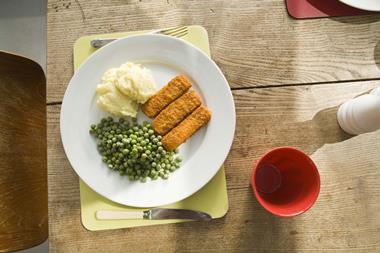
Birds Eye owner Nomad Foods has announced its 2050 net zero target has been validated by the Science Based Targets initiative.
The global body, which assesses corporate climate targets, has also approved the European frozen food manufacturer’s renewed science-based greenhouse gas reduction targets, previously set in 2021, across its operations and supply chain.
The targets were consistent with the reductions deemed necessary to keep global warming to 1.5°C as per the Paris Climate Agreement – a legally binding international treaty on climate change, Nomad said.
The business, which also owns, Ledo, iglo, Findus and Frikom intends to reduce Scope 1 and 2 GHG emissions by 90% by 2050, from a 2019 base year.
It will also aim to reduce Scope 3 Forest, Land and Agriculture (FLAG) GHG emissions by 72% and non-FLAG emissions (from purchased goods and services, fuel- and energy-related activities, upstream transportation and distribution, waste generated in operations, business travel, employee commuting and downstream leased assets) by 90%.
With food systems accounting for over one-third of global greenhouse gas emissions, the food industry had a “crucial responsibility in supporting the transition of the food system to net zero”, said Nomad head of sustainability David Pettet.
“As Europe’s leading frozen food business, we’re committed to helping millions of consumers enjoy more sustainable meals through choices that reduce environmental impact without compromising on taste, quality, affordability, or convenience,” he said.
“We’re proud to have our emission reduction targets approved by SBTi, further demonstrating our commitment to play our part in tackling climate change.”
In 2020, Nomad Foods became a signatory of the 10x20x30 global initiative to halve food loss and waste in supply chains by 2030.
It claims to have already reduced edible food waste per tonne of finished goods by 37.7% compared with a 2015 baseline.
The company has also confirmed that 100% of its Scope 2 electricity will be purchased from renewable sources for all factories, offices, and warehouses by 2030, with its current purchasing figure standing at 96.8%
In 2024, Nomad Foods became the first food manufacturer to join the move to –15°C global coalition, a movement dedicated to changing frozen food temperature standards in order to cut carbon emissions across the frozen food supply chain.



















No comments yet